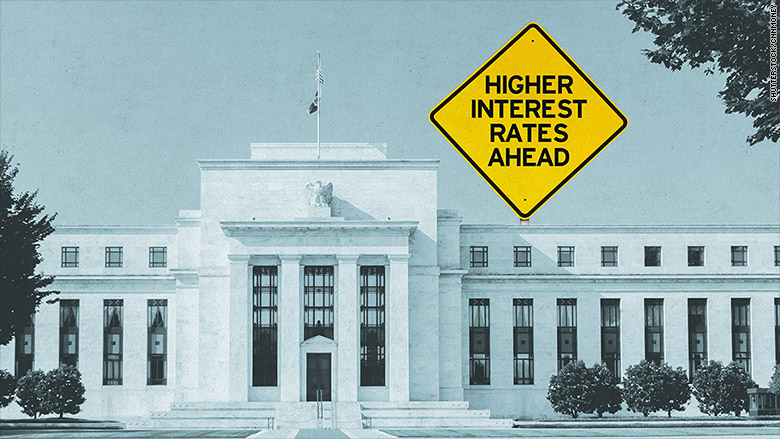
The U.S. economy is still healthy, says Cleveland Federal Reserve President Loretta Mester.
Translation: Don't rule out interest rate increases in 2016.
Hardly anyone thinks the Fed will raise rates at its next meeting in March.
Stock markets have tanked since January 1 as investors worry about China's slowdown, plummeting oil prices and the strong dollar.
"At this point, I view them as posing some risk to the outlook, but I believe it is premature to materially change my modal outlook," Mester said at a Market News International conference in New York Thursday evening.
She used the word "premature" several times during her remarks.
Related: Market now predicts ZERO Fed hikes in 2016
Mester is one of many Fed members speaking out to try to calm markets and clarify the central bank's thinking in an increasingly turbulent world.
The market now predicts no increases at all in 2016, but the Fed's own estimates indicate four hikes. It's a big disconnect.
"Underlying U.S. economic fundamentals remain sound," said Mester, a voting member of the Fed's committee that sets interest rates. "We're looking at medium-term outlook, [the market] may be looking at the short-term."
While she acknowledges that a "steeper, more persistent" drop in the stock markets could lead to a bigger pullback, she sees that as a slim possibility.
The market also tanked in late August and September before rebounding.
"My expectation is that the U.S. economy will work through the latest episode of market turbulence and soft patch to regain its footing for moderate growth," she said.
Related: Cracks in the U.S. economy are growing
America is not heavily dependent China. Selling goods to China only represents about 7% to 8% of total exports. Similarly, manufacturing and energy are small parts of the U.S. economy.
While growth slowed at the end of last year, hiring remains strong. The U.S. has had a pattern of a weak winter followed by a big economic boost in the spring and summer.
The latest check on the economy's pulse will come Friday morning when the U.S. Labor Department releases data on how many jobs were added in January.
CNNMoney's survey of economists predicts 197,000 jobs were added. Anything around 200,000 job gains a month is considered strong.


